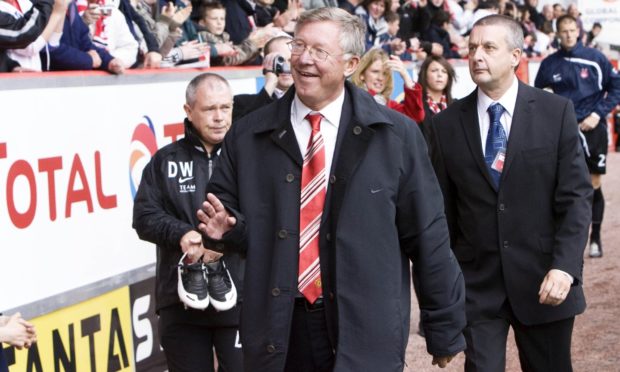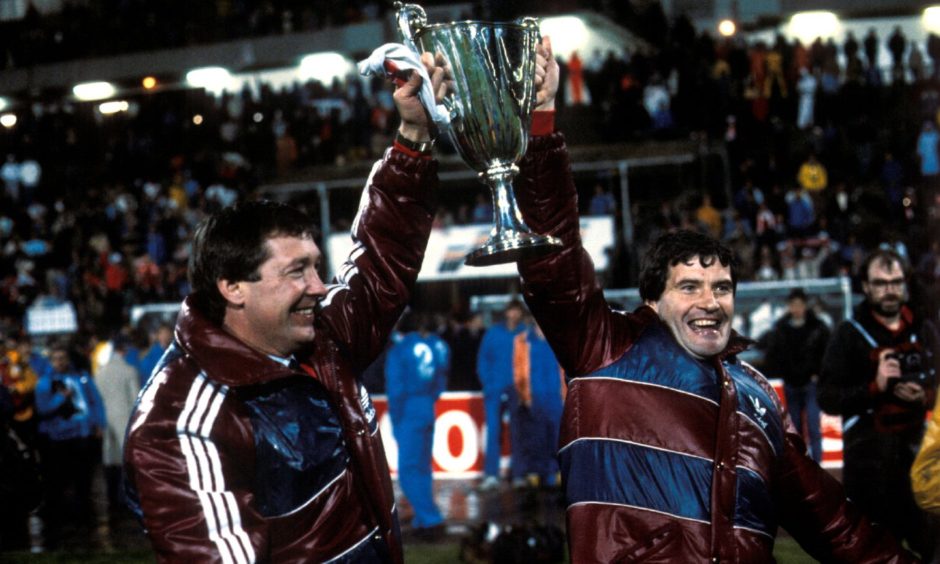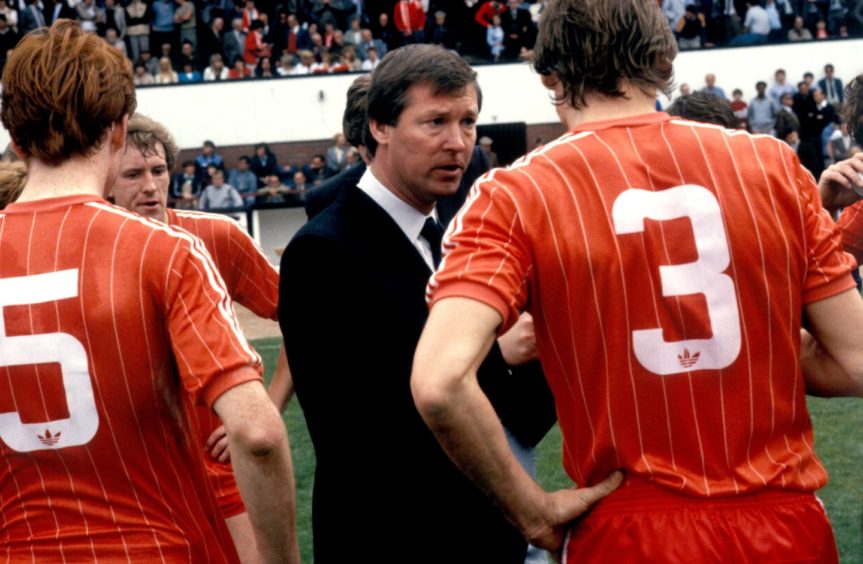Legendary Aberdeen boss Sir Alex Ferguson has pointed to the club’s European Cup Winners’ Cup triumph in 1983 as the reason for his opposition to the doomed European Super League plans.
Six English clubs were part of an attempt to form a breakaway closed-shop Continental competition last month, with teams pulling out en masse after public backlash.
Manchester United, where Fergie went after his spell at the Dons and where he was manager for 26 years, winning two Champions League titles, were part of the Super League plan.
However, Ferguson said his experience at Pittodrie between 1978 and 1986, where he led Aberdeen to every domestic honour, the Cup Winners’ Cup and European Super Cup, showed competitions reserved for the wealthiest clubs would remove the “real reason” for football.
In a promotional interview with the BBC for new documentary Sir Alex Ferguson: Never Give In, which tells the story of his life, the legendary boss said: “As a manager I took a provincial club, Aberdeen, and beat Real Madrid in the (1983 European Cup Winners Cup) final in Gothenburg. That is a provincial club, fulfilling its dream.
“Every club should have that dream to achieve what Aberdeen did. So that’s the answer.
“You cannot ever forget that the real reason for football was that the smallest guy can climb to the top of Everest, and that’s the best way I can put that. We can’t do without that really.”
Elsewhere in the BBC interview, Sir Alex revealed, although he thinks he would still have the right attritbutes to be a successful manager in the modern game, he feels modern players are no longer the “strong” characters he had under his charge at clubs including the Reds.
Names like Willie Miller, Alex McLeish and Jim Leighton are synonymous with the golden Dons generation Fergie led.
The iconic gaffer said: “I think I had something in me that was bound to get me somewhere in life. I’m not being boastful, but I think I had that personality to do well, the drive and the hunger and the energy. Even when I got into my ’60s I wanted the players to really see my energy.
“My experience in the last few years at United would reflect the fact that they are more fragile, they need more care.
“The players I inherited at Aberdeen and Manchester United were strong, were powerful, and it’s changed because it’s become a more protective life nowadays. I was very lucky to inherit the kind of players that I did in my earlier days.”
Sir Alex Ferguson: Never Give In was in the early stages of production when Sir Alex suffered a brain hemorrhage in 2018.
Ferguson, who has previously spoken of fears he had lost his memory and speech in the wake of the incident, says his ordeal has changed his outlook on life.
Asked how, he said: “Probably not taking things too seriously in terms of knowing that you’re vulnerable… if I go tomorrow I’ll be grateful for three years extra I had. That’s a feeling I’ve had for quite a while now.”
WATCH: Aberdeen icon John McMaster revisits Cup Winners’ Cup success for Gothenburg Day


